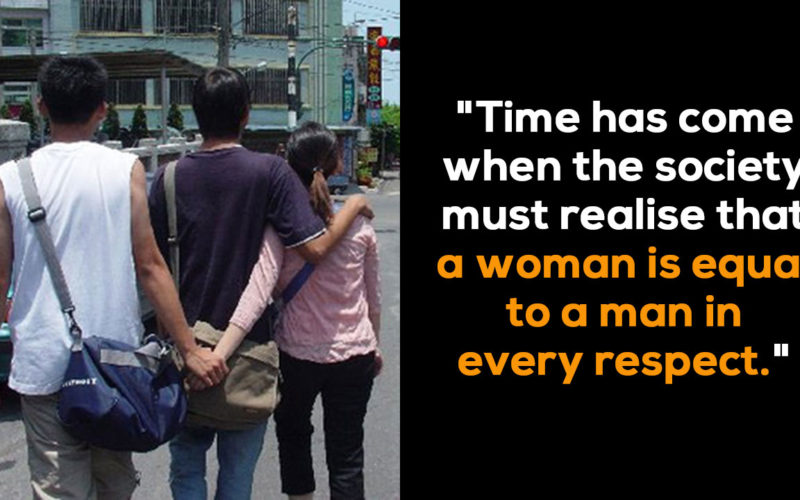- 3.2Kshares
- Share
- Tweet
- Facebook Messenger
In the days of old, a woman was confined to the four walls of her house, at the utter mercy of her husband and other male relatives. Men were free birds, at liberty to live their lives the way they wished. In such circumstances, while a man could be likely to commit adultery, encouraged even by archaic customs, a woman committing adultery was unfathomable.

It’s probably why our country’s adultery laws, framed 157 years ago by the British have provisions for punishing a man’s adulterous act but none to bring a woman committing adultery under a similar legal ambit.
But things, they are a-changing, thanks to the growing demands of equality for both genders to be incorporated in all spheres of life.
In fact this Friday, the Supreme Court of India has agreed to admit a petition that seeks to re-examine the 157-year-old adultery law in Section 497 of the IPC, which penalises men but lets the women get off scott-free.

A Public Interest Litigation (PIL), filed by one Joseph Shine, a resident of Kerala, questions the validity of Section 497 of the IPC, which states,
In layman terms, this law means that if a man commits adultery with the knowledge that the woman is another man’s wife, and if this act is consensual, then the man will be liable for criminal punishment. However, the woman will not even be punished as an abettor in this case.
The law blatantly violates Article 14 of the Indian Constitution, which is the Right to Equality and guarantees every individual equality and equal protection before the law.
Another issue that has been raised is with one of the clauses of this law which pertains to the husband’s consent in such a scenario.
Advocates K Raj and S Sundaram, who will be appearing on behalf of the petitioner, Mr. Shine, have said,
“It is a male chauvinistic provision in the sense that it gives a free hand to the husband to determine whatever it is an offence or not. This is not a gender neutral rather gender bias provision and the Constitution is always gender neutral.”
An SC bench headed by Chief Justice of India Dipak Misra and Justices AM Khanwilkar and DY Chandrachud has issued a statement seeking the re-examination of this gender-biased law.

According to Asian Age, in their statement, the bench has said,
In addition, the bench also took the petitioner’s concern about the role that the husband’s consent plays in such scenarios and agreed to the fact that it severely jeopardises a woman’s independence.
“It is perceivable from the language of the provision the fulcrum of offence is destroyed once the consent of husband is obtained. Viewed from that scenario, the provision creates a dent on the independent identity of women.”
What was indeed noteworthy was a powerful remark made by the bench that would resonate with definitely resonate with the times we live in.

“Time has come when the society must realise that a woman is equal to a man in every respect.”
There are several archaic laws in our country that need to be deeply scrutinised and amended to fit the modern times. It is good to see that the Supreme Court is addressing these concerns with the right approach. As for equality, here’s hoping it prevails!
- 3.2Kshares
- Share
- Tweet
- Facebook Messenger




